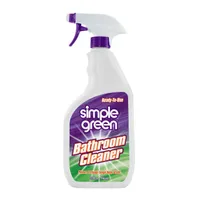4 products you should never use to clean your bathtub according to experts
Are you making these cleaning mistakes?
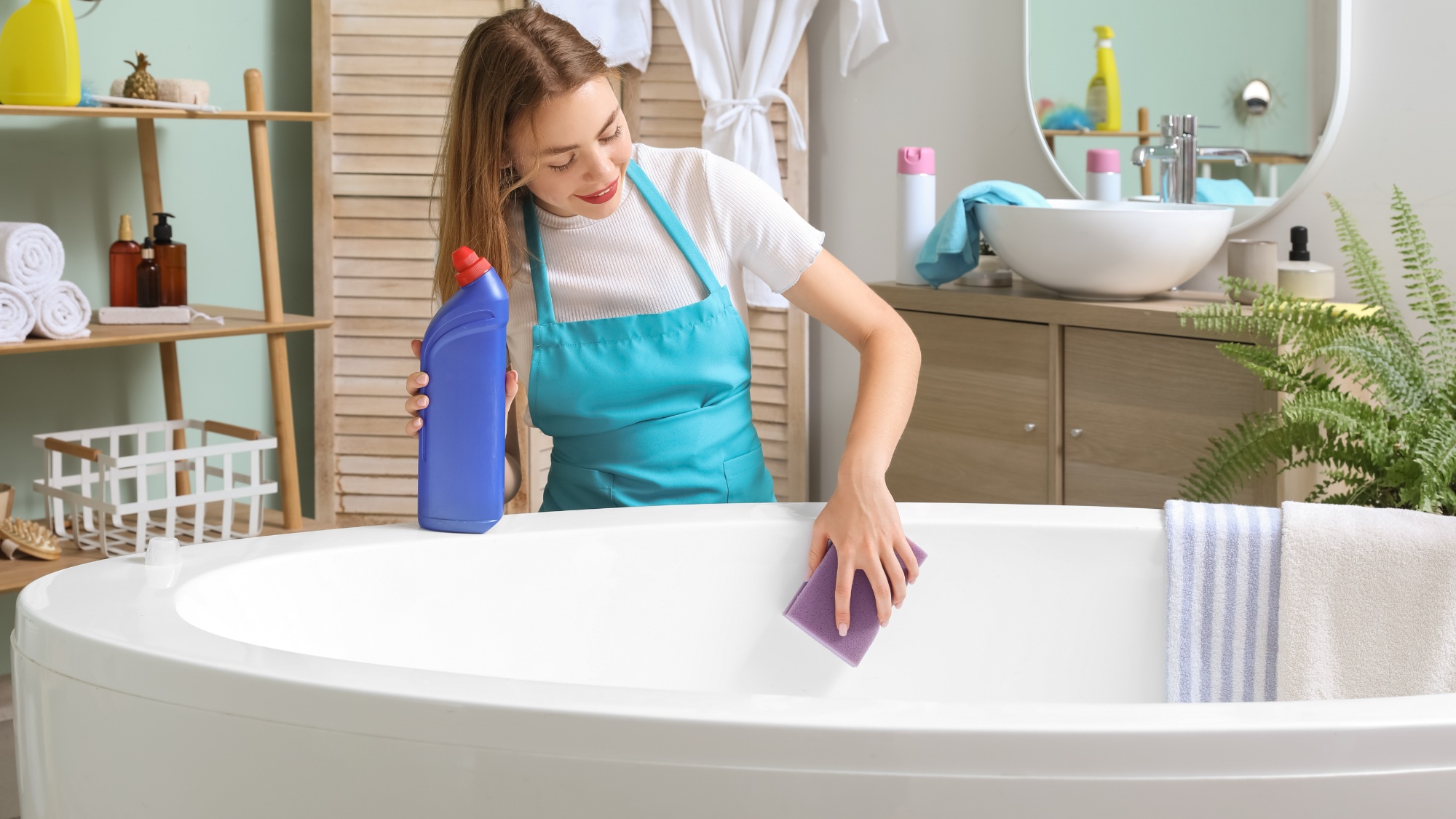
Cleaning fanatics go wild for the newest cleaning trends and advice on the best chemicals to use for cleaning tasks. And with #cleantok having over 1,600,000 posts, there’s no doubt about its popularity. Everyone wants to know how to clean better — from how to clean a bathtub to how to clean grout on tiles.
However, sometimes, these posts and recommendations could do more harm than good, ruining the very thing you’re trying to clean. Although bathtubs can be made of a range of materials, depending on your particular tub, you could be damaging the lining of your bathtub if you're using these cleaning hacks to remove daily grease and grime.
With this in mind, we’ve enlisted the expertise of Ryan McNicholl, product adviser at Spares Direct, to give us the lowdown on the common cleaning products you shouldn’t be using to clean your bathtub and the damage it can cause.
And if you want to make your bathroom feel like a spa, here are 3 bathroom cleaning gadgets I recommend.
Avoid using these products to clean your bathtub
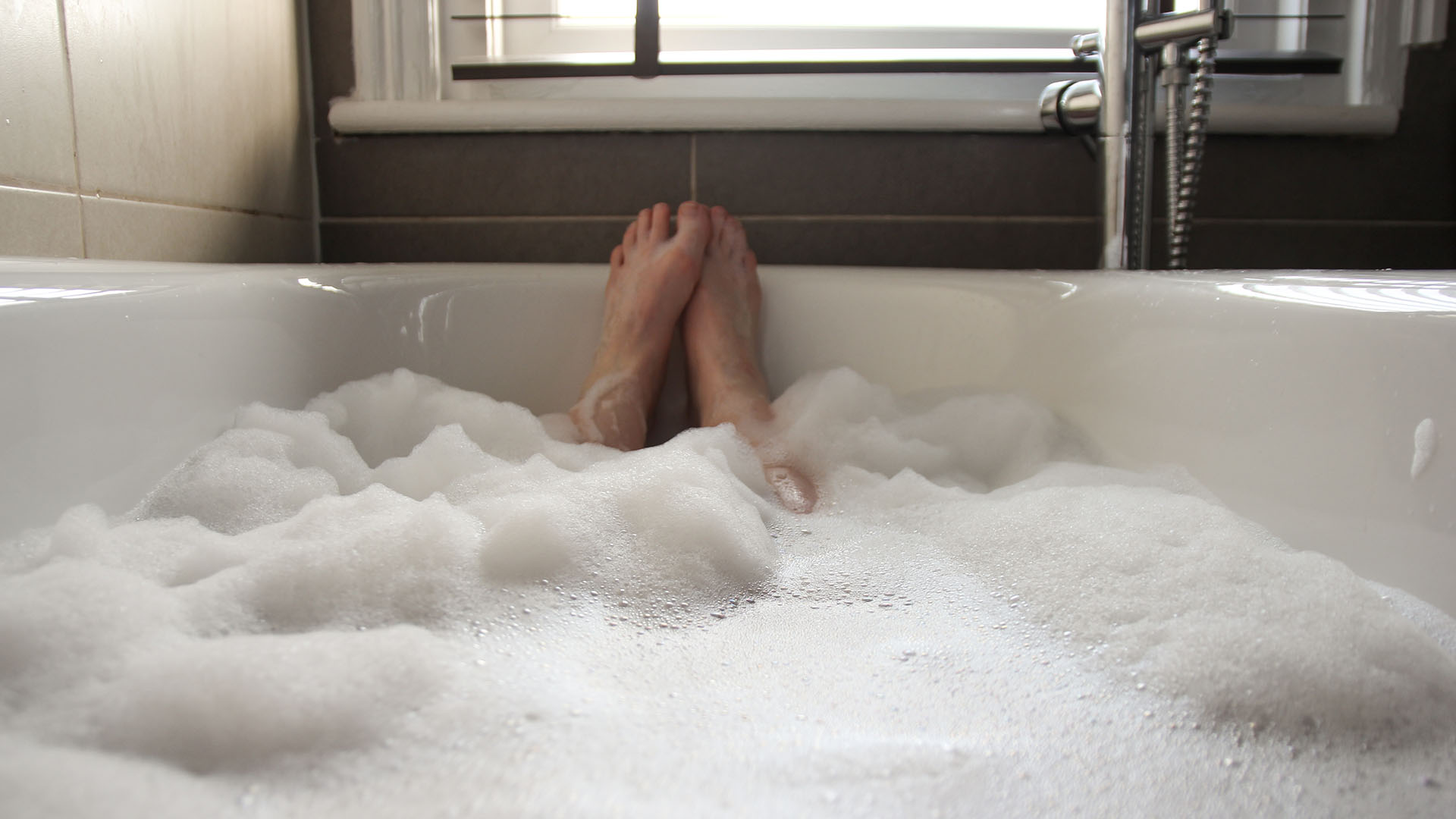
The bathroom is one of the rooms in your home that you should clean on a regular basis. Although not visible to the naked eye, there are large amounts of bacteria in your bathroom. Germs can live on surfaces for one to seven days, so regular cleaning can prevent them from spreading and causing infection. A clean bathroom encourages relaxation, so if you enjoy taking a long, relaxing soak in the bath, it’s far easier to unwind if your surroundings are clean.
But you need to be cleaning your bathtub in the right way to avoid ruining its surface and causing it more harm than good.
1. Bleach
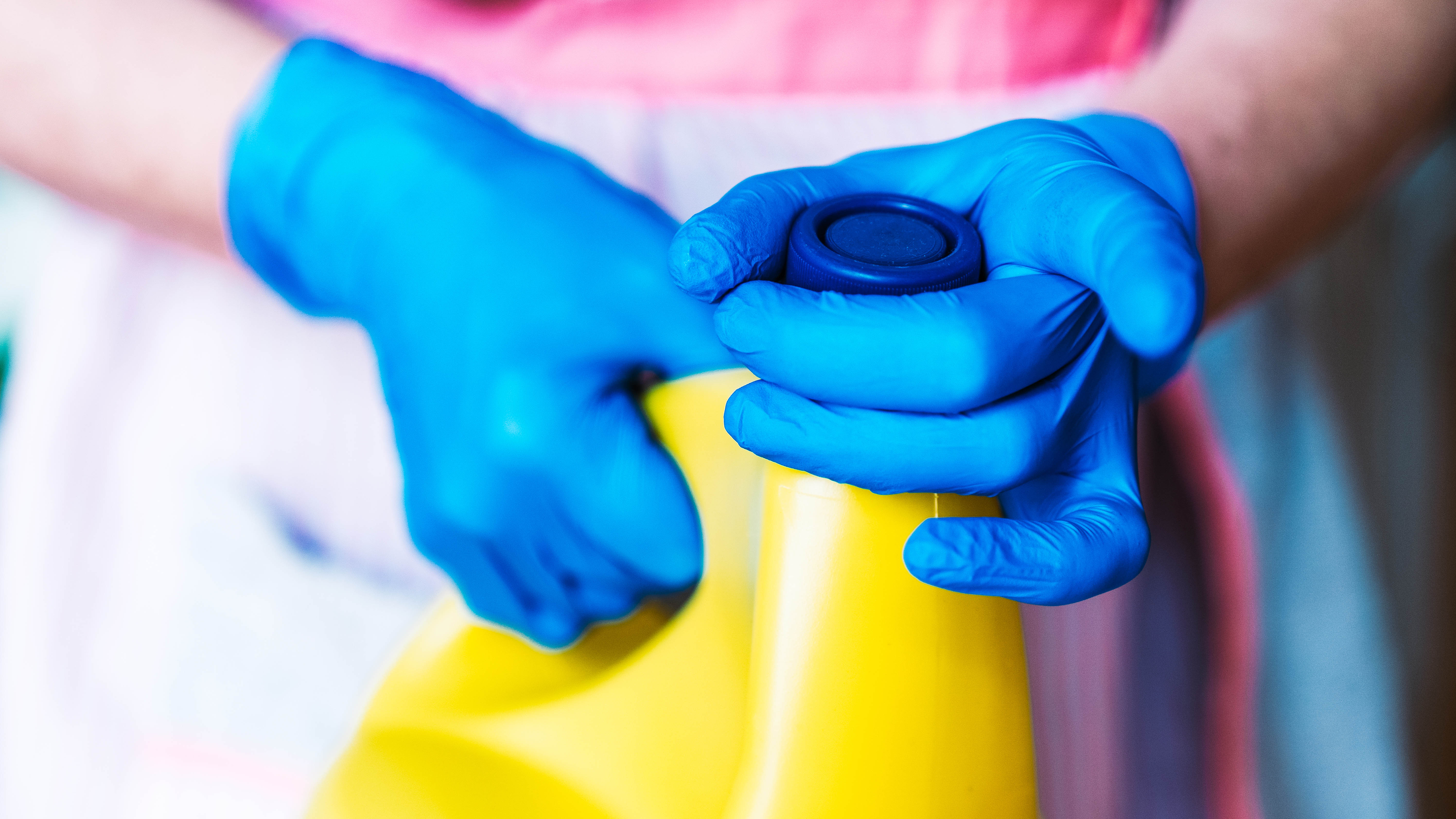
Bleach is a household cleaning staple often called on for deep cleaning as it is a disinfectant. Its active ingredient, sodium hypochlorite, breaks down microorganism proteins, killing bacteria, fungi and common viruses. In the home, we often use it to clean toilets and wipe down surfaces, and it can also be used to brighten laundry whites.
Get instant access to breaking news, the hottest reviews, great deals and helpful tips.
However, although it’s tempting to clean your bathtub with this strong disinfectant and whitener, be sure you don’t make this mistake when you clean with bleach. McNicholl says, “While effective at killing germs and it feels like you are doing a deep clean, bleach can discolor and damage your bath’s surface over time and lose its original color. This is especially common in older tubs or those with specific finishes.”
2. Scouring powders
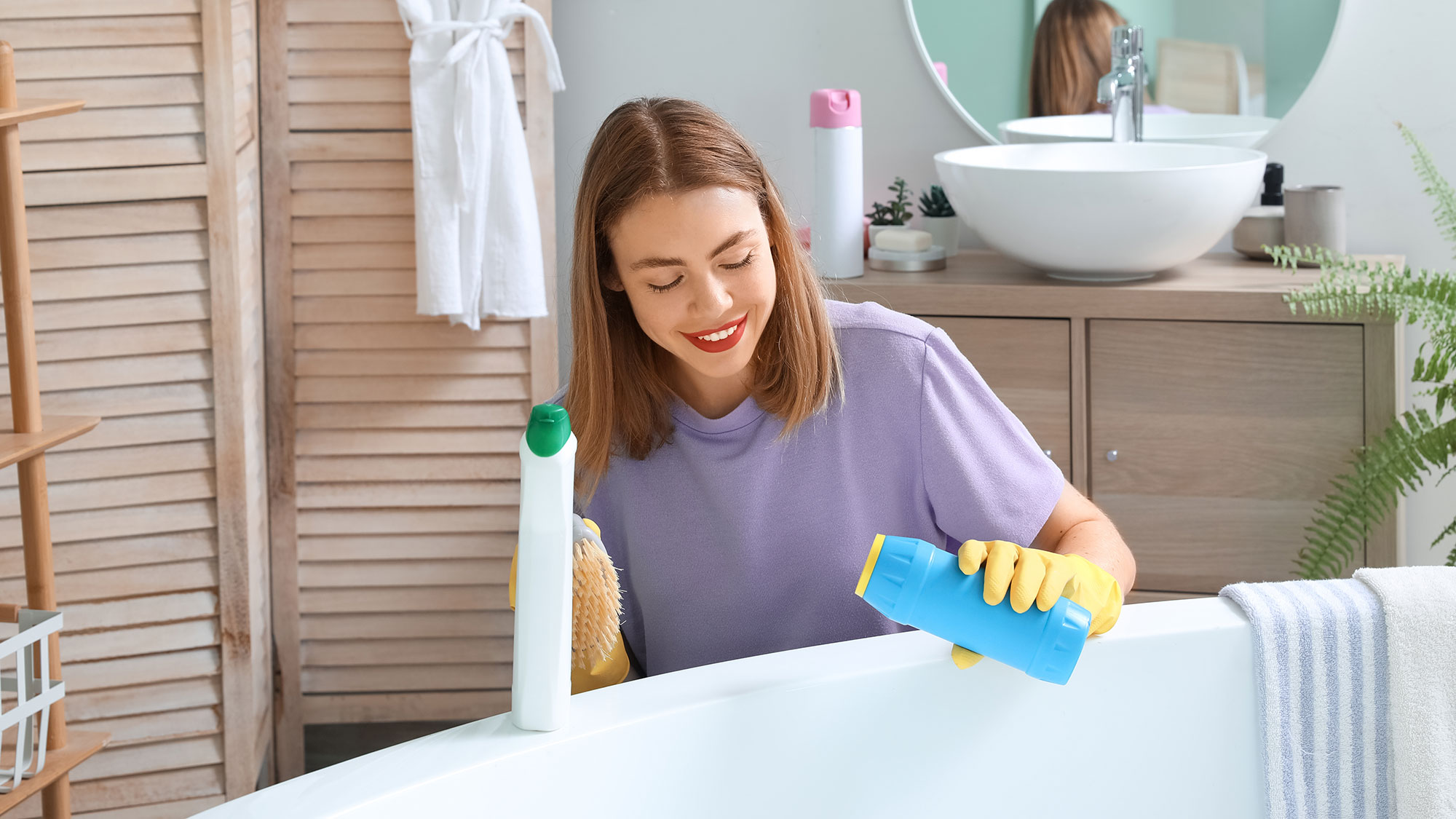
We’ve previously advised that abrasive scouring powder is one of the things you should never use to clean an induction stovetop, and it should also be avoided when cleaning a bathtub.
“These can scratch the surface of your bath, creating tiny crevices where bacteria can thrive,” says McNicholl. “It can also erode the protective coating of your bath, leaving it dull, scratched, or even pitted. This can make it more susceptible to stains and mold growth.”
Knowing how to get rid of mold in your bathroom can help, but it’s best to prevent it from occurring in the first place.
Simple Green Ready-to-Use Bathroom Cleaner: $8 @ Walmart
This 32 oz bathroom cleaner from Simple Green removes dirt, limescale and soap sum and can be used on porcelain, tiles, glass, stainless steel and chrome. It is bleach-free, ammonia-free and phosphate-free and leaves behind a fresh wintergreen scent. It is also non-abrasive.
3. Magic erasers
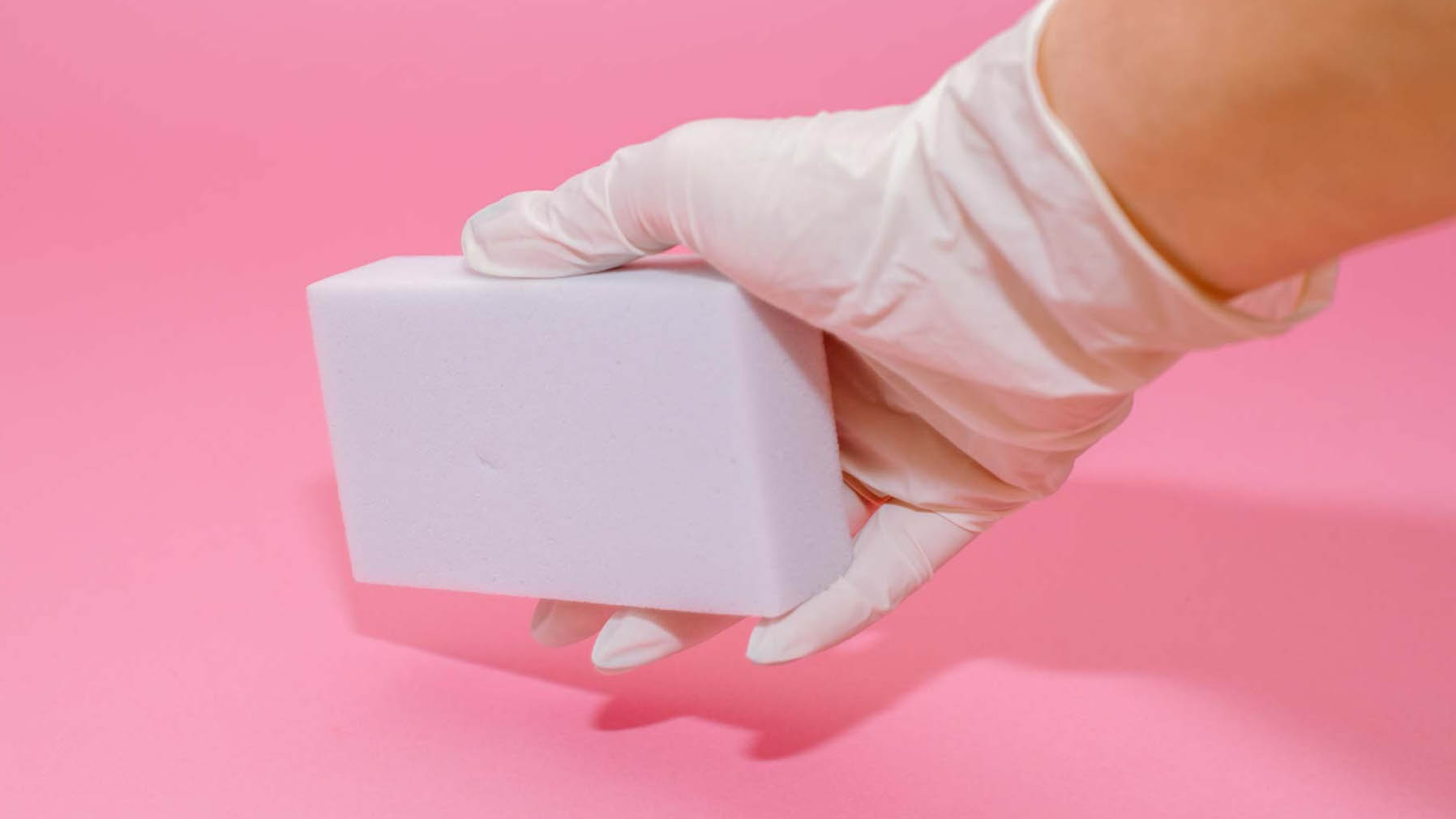
Magic erasers are abrasive foam cleaners used to remove stains and spots on surfaces. However, McNicholl says, “While effective on some surfaces, they can scratch acrylic or porcelain bathtubs.”
He explains that acrylic surfaces can become scratched, “creating tiny imperfections that can accumulate dirt and grime over time, making the tub harder to clean.”
The same is true of porcelain bathtubs, “While more durable than acrylic, porcelain can also be scratched by abrasive cleaners. This can dull the finish and make the tub more susceptible to staining.”
4. Commercial bathroom cleaners with harsh chemicals
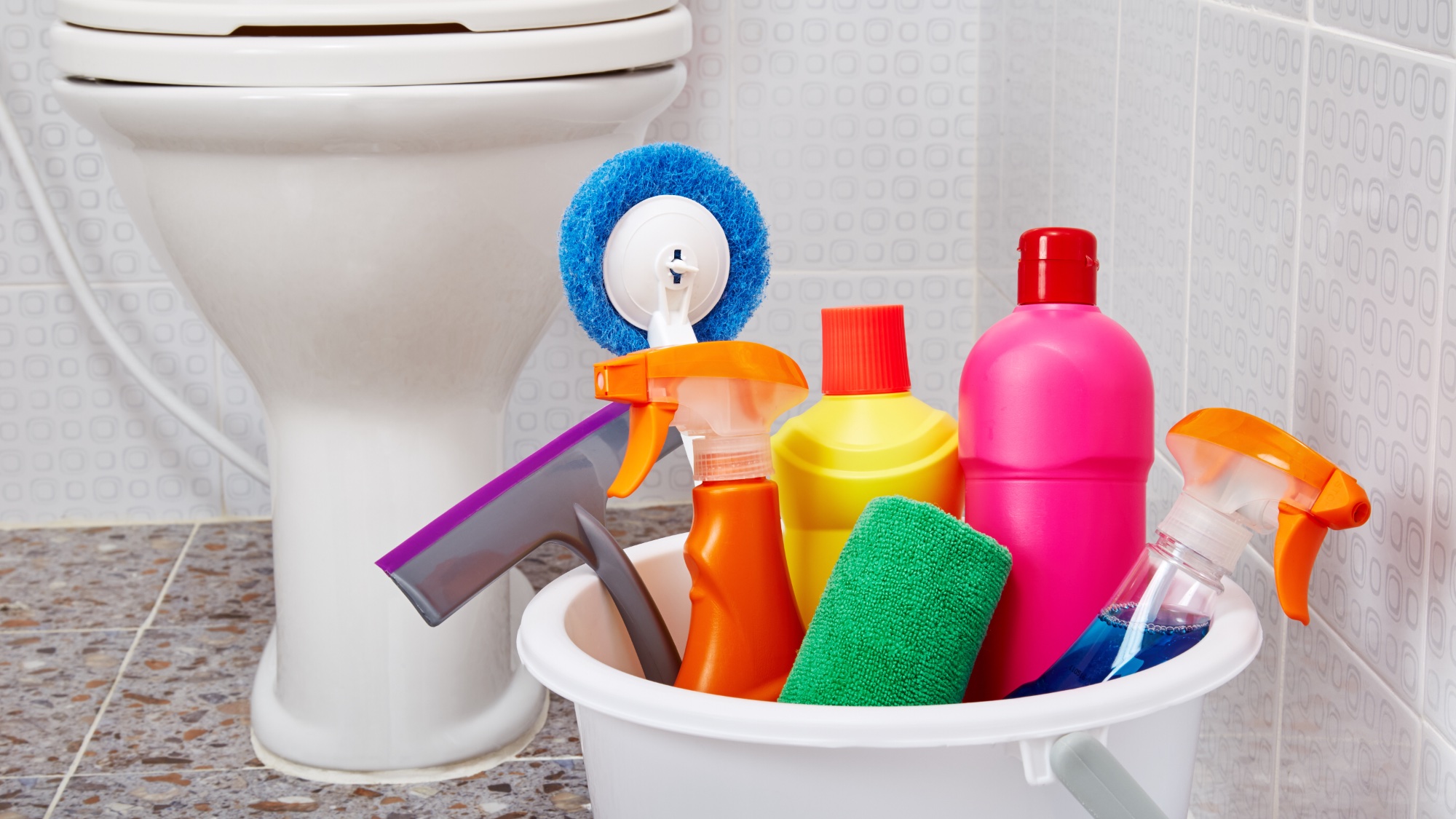
Commercial bathroom cleaners aren’t designed for domestic use and extreme caution should be taken when using them.
“Many of these contain ingredients that can harm your bathtub and your health,” says McNicholl. “Always check the label for ingredients like chlorine, ammonia, and strong acids.”
Repairing the damage
If you’ve used any of the products mentioned above and noticed that your bathtub is scratched, McNicoll mentions that you might be able to buff out or polish them to reduce their visibility.
More from Tom's Guide

Camilla is the Homes Staff Writer and covers everything to do with homes and gardens. She has a wealth of editorial experience, mounting over 30 years, and covers news and features, tests products for reviews and compiles buying guides.
Her work has appeared in business and consumer titles, including Ideal Home, Real Homes, House Beautiful, Homebuilding & Renovation, and Kitchen & Bathroom Business. She’s even appeared on the cover of Your Home, writing about her own house renovation.
Although she’s obsessed with decorating her home, she also enjoys baking and trying out the latest kitchen appliances. But when she’s not inside, you’ll find her pottering about in her yard, tending to her vegetable patch or taking in her prized hydrangeas.
